Lost in Time
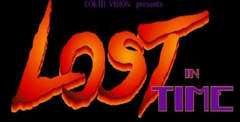
| a game by | Coktel Vision |
| Platform: | PC (1993) |
| User Rating: | 8.0/10 - 2 votes |
| Rate this game: | |
| See also: | Old School Games, Cult Classic Games |
French games are not weird. They are very classy, exquisitely programmed (most of the time), full of originality and usually a joy to play. They are not weird. Okay? In case you were wondering. I have, in the past, been accused of being very unfair to our French cousins by declaring that all their games are a little odd. I played Another World from Delphine and thought it had a bizarre story. I dabbled with Sliders from Silmarils and thought it an odd concept and I delved into Inca from Coktel Vision and became lost in its... unique style. All these definitions were misinterpreted as me calling them weird something that Coktel Vision has been particularly keen for me not to do with their latest offering. Lost in Time.
Une variete des styles
So let me set the record straight by saying right now that Lost in Time is definitely not weird. If anything, it is one of the most intriguingly presented adventure games I've seen to date. It uses 3D rendering (a la Inca), it uses full motion video clips (a la The 7th Guest - only clearer), it uses professional cartoon illustrations (it la a French comic book) and it uses state-of-the-art filming techniques (& la Hollywood).
The reason for such a heady mixture of differing styles is that, as you might expect from the title, the player spends most of the game zipping around from one era to another. Therefore each setting is given its own identity, its own look, style and feel. 'For the sake of realism we decided that scenes happening in our time period would be in full-motion video,' explains Frederic Chauvelot. graphics designer for the game. 'The scenes set in the Caribbean island should have the bright, dream-like quality seen in Segur's drawings (a famous French cartoonist brought in to help illustrate the game), while the feeling of motion and travel in the boat seemed best represented by a 3D environment, similar to the one seen in Inca.'
The central figure behind the scenes is Muriel Tramis, author and project manager of Lost. 'The creation of a game like Lost requires the meeting of two different worlds -software and audio/visual. I have to make sure that the people of the different professional worlds communicate well. The video specialist, concerned with the filming and video sequences will require the creation of special programming tools created by the programmer. Unfortunately, because of constraints such as memory space and display speed, it isn't always easy to transcribe the wishes of a graphic artist or a musician into computer terms.'
To this end Coktel Vision has a separate office in Bordeaux used for research and development of specific programming tools for each game. Philippe Lamarque is the main programmer of Lost and has had to create complete sequencers and animation tools from scratch. 'A game as large as Lost, requiring complete interactivity made up of space-consuming video scenes and 3D pre-calculated graphics, cannot be programmed without previous research and a clear understanding of how the graphic aspect can be integrated to the programming. The main role of the tools we create is to simplify the integration of the graphics.'
'Lights, camera, action'
Of course the main development of Lost in Time is in the filming. Professional studio and location techniques have been used to create all the full motion video scenes, and the whole development of the game is akin to a Hollywood movie.
'I think the two worlds of film and game are becoming closer each day,' muses Tramis. 'An interactive movie such as Lost in Time resembles a film in most aspects - the classical rules of script writing, the production with camera positioning, lighting, the storyboard, the soundtrack, the casting of actors and the search for the best locations.
'The main difference between games and films can be seen in the interactivity. In the game the player is not passive but has the main role in the progression of the story. It is a study in ergonomics, the science that looks for the best way of communication between humans and machines. All this makes the interactive movie a very individual and innovative genre with its own artistic rules.'
The initial filming on Lost was done in studios, using professional actors and the much heralded 'blue background' techniques seen in so many science fiction films and tv shows. Once the preliminary filming was completed, Chauvelot and Tramis started to scout for background locations. 'A large part of the filming was done in Brittany,' says Chauvelot. 'We first went looking for a country manor with gardens, and a lighthouse suitable for the story. Once the manor had been found we had to meet the owners and managed to rent it for a week. For the lighthouse we had to rent an entire island, relying on the friendliness and hospitality of the inhabitants.'
The whole process of scouting, travelling, filming and integrating the video into the game has taken approximately eight months. Add to that the one and a half years that Tramis has spent developing the game from scenario to finished product and it all adds up to a pretty big investment for Coktel Vision. 'I first took a month to write the story,' says Tramis, 'Then another few months to split it into plans, create logical outlines and describe the mechanics. The story comes completely from my own imagination, but I have been inspired by certain sci-fi authors such as Asimov for their scientific justifications of avant garde theories. The worlds of Spielberg (Indiana Jones, FT etc.), Ridley Scott (Blade Runner). Cronenberg (The Fly) and Flitchcock also fascinate me. I aimed at creating an original science fiction story, full of suspense and with paradoxes all along the way.'
Niveaux de difficulty
'The difficulty of a game is very important,' says Tramis, 'Even more so as the perception of difficulty differs from country to country.' This is all too true. Who can forget the Loom scenario for instance; a game with a perfect story and just the right length, but one that was far too easy to solve. Compare that to Delphine's Cruise For A Corpse, a game that had a limited number of locations, but had even the most experienced of adventurers up until the wee small hours.
So will Lost follow the traditional French themes? 'We don't want our games to be too difficult.' explains Tramis, 'As getting stuck too often in one go can put the player off. A subtle way to increase the difficulty is to propose a non-linear progression. Give the player a certain amount of freedom that spreads out to a larger space. Of course, too much freedom also disconcerts. These are all different criteria that one has to juggle with.
'I have tried to create a game accessible to beginners, but at the same time interesting for the real pros.' Many games have tried this in the past though and almost always stray too far in one direction or the other. How does Tramis deal with this? Anyone remember the on-screen help from Goblims? 'We have installed Jokers (the help system) to make things easier. The game was tested by players and when a certain level of difficulty was detected we decided to put in a Joker.'
Deux pour le prix d'un
One of the other problems that has to be solved when making an adventure game is the question of length. How do you make a game big enough to provide value for money, but not so long-winded that the player gets bored long before the end? Lost in Time solves this in a rather unique fashion. 'We've split the games into two parts.' explains Emmanuelle Kreuz. PR Manager at Coktel Vision. 'Because the game was so large, we had to separate it into two completely independent products. You can buy each game individually or possibly both, as a sort of compilation package.'
Won't this put the price up, though? According to Ms. Kreuz. 'Each game will be sold for about half the price of an ordinary game. If you buy the two together, it will be just like buying a single product.' There are other reasons for buying both parts, namely an after-sales competition. 'In France we are running a contest. If you complete the game you simply get in touch with Coktel Vision, describe the end sequence and you get to choose a free game from our recent catalogue.' It's still to be finalised whether this competition will run in Britain too. but all the current signs look good. Of course, whether this is a good deal or not depends on your view of Coktel Vision's recent games. But with titles such as Inca, Ween and Gobliins 2 on offer, it doesn't look too bad.
Qu'est-ce qui viendra apres?
Everything about the creation of Lost in Time says that the world of film will soon be closer to the world of computer games than anyone can imagine. This isn't the first time the a games developer has used movie techniques to create a game and it certainly won't be the last, but Coktel Vision has really dived in with a vengeance. Trarnis is still a little cautious though. 'You could say that different genres will appear in interactive films (thrillers, comedies, westerns etc.), but if we talk in cinema terms. I would say that we are still in the age of silent movies as we are not yet familiar enough with the professional techniques that evolve very rapidly in order to concentrate fully on the creation and match the tastes of the public.
'We are entering the age of home interactivity. After tv. video and the hi-fi. there is now the interactive film. The more we progress through the years, the more technology will offer high quality leisure for all tastes. The twenty-first century will be a civilisation of high technology. Just look at today's modern theme parks and things like Futuroscope and American interactive museums. I am just proud to contribute to all this in my own way.'
Download Lost in Time

System requirements:
- PC compatible
- Operating systems: Windows 10/Windows 8/Windows 7/2000/Vista/WinXP
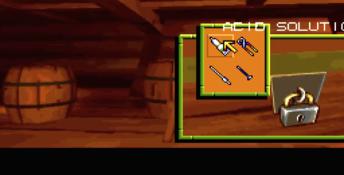
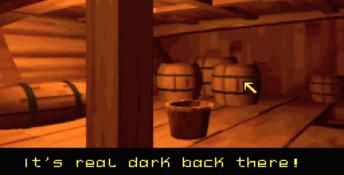
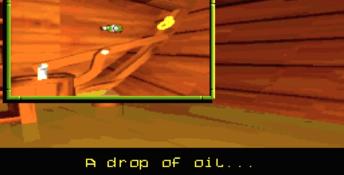
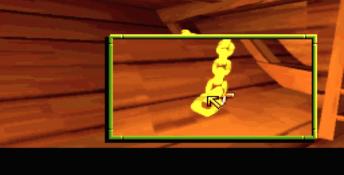
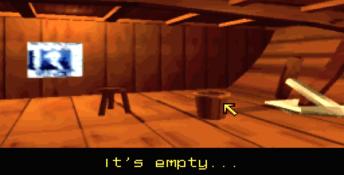
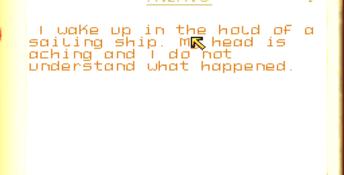
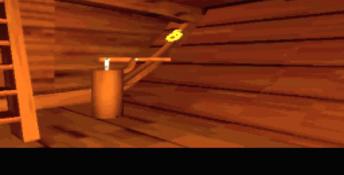
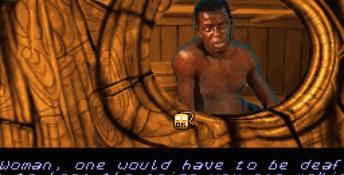
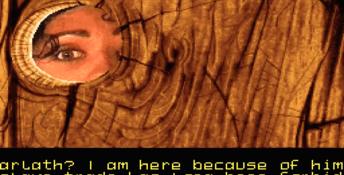
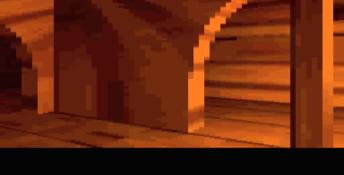
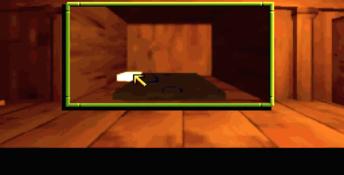
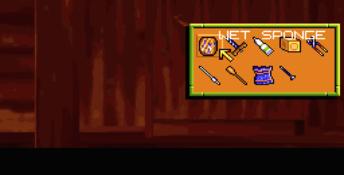
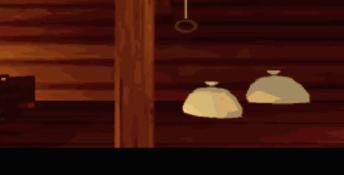
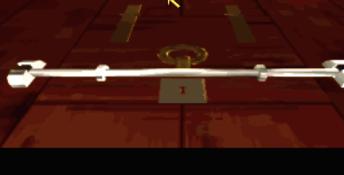
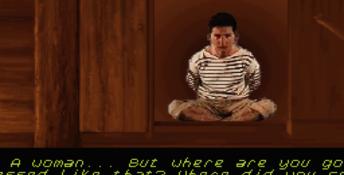
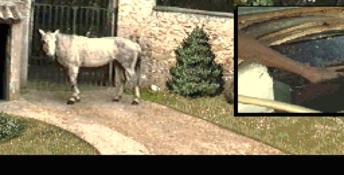
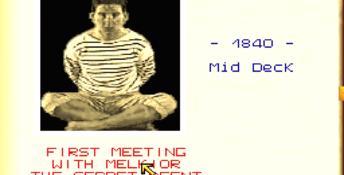
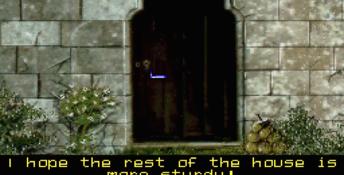
 Agatha Christie: And Then There Were None
Agatha Christie: And Then There Were None
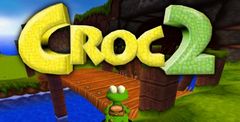 Croc 2
Croc 2
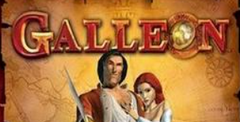 Galleon
Galleon Gobliins 2
Gobliins 2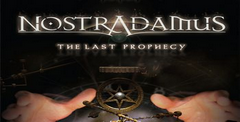 Nostradamus: The Last Prophecy
Nostradamus: The Last Prophecy Sentient
Sentient
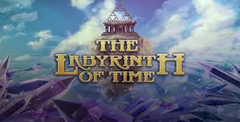 The Labyrinth Of Time
The Labyrinth Of Time
 The Ward
The Ward